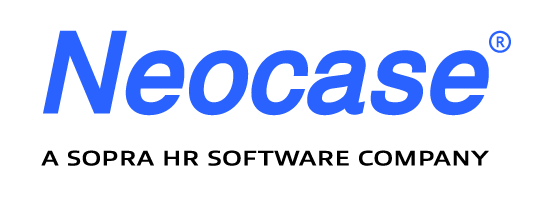In the United States, the manufacturing industry has faced incredible challenges for the whole of the 21st century. Can innovative Human Resources in the manufacturing industry rise to meet them?
In 1999, 17-24% of workers in the United States were employed in manufacturing, with the Midwest hosting the majority of those manufacturing jobs. The western states had the least.
By 2019, manufacturing only accounted for 8% of jobs nationwide.
In the same vein, the perceived value of manufacturing to the country's economy has diminished. International trade, wage suppression, and an innovation deficit drove down manufacturing's value.
Manufacturing value-added as a share of GDP declined from 15% in 1999 to 10% in 2021—a downward trend that shows no signs of abating.
Now, industry leaders hoping to reverse the trend are focusing on one key department: Human Resources.
Discover why HR teams are pivotal to getting manufacturing companies back on sure footing. Then, learn more about the key challenges HR teams will face in this industry if they aim to thrive—and survive.
What is HR's Role in a Manufacturing Company?
In all industries, the HR department is responsible for managing the employee lifecycle, maintaining safety and compliance measures for a safe work environment, distributing benefits to employees, and so much more. In practice, this means HR representatives must perform the following functions:
- Recruiting
- Hiring
- Onboarding
- Training
- Firing
HR teams may also create performance-based reward systems and play a key role in developing and maintaining the company culture. As well, HR representatives need to mediate the relationships between employees and supervisors.
The HR department's role in manufacturing may not differ drastically from other industries, but where it does realize a difference is in the strategies HR professionals use to perform these functions. These strategies are key to navigating unique hurdles that are specific to manufacturing.
HR in Manufacturing: Top Three Challenges
HR professionals face challenges no matter where they work. But in manufacturing, there are some unique problems that HR teams must deal with.
When HR professionals face these challenges head-on, they empower their companies to thrive.
-
Barriers to Recruitment
HR teams face barriers to recruiting skilled talent. For one thing, outdated stereotypes about the nature of manufacturing work can prevent people from applying to open positions in the industry.
For another, manufacturing jobs have been perceived to not always offer top salaries when compared to other industries.
The mean annual wage of manufacturing production workers in the United States is $36,230, according to the BLS. And entry-level salaries are typically lower. This is significantly less pay than the median annual wage offered to:
- Construction laborers ($44,130)
- Truck drivers ($48,310)
- HVAC mechanics and installers ($48,630)
The manufacturing sector competes for quality employees with blue-collar service sectors, which have taken increasingly large shares of the job market.
Meeting the Challenge
To compete, HR teams need to highlight the factors that differentiate their company from competing employers. If the pay is on the high-end of the market rate, don’t be afraid to mention that to prospective candidates.
If your company culture nurtures individual, professional growth, if the benefits are excellent, or if you offer employees more control over their schedules so they can spend more time with family, highlight those factors as well.
Don’t be afraid to talk about what your company has to offer, and always connect with other professionals in your network and industry to see if there’s strategies that you could implement at your company as well!
Sponsoring community events can also raise awareness—and forge a positive reputation—of the company's brand within a local market where physical presence for work is required.
-
High Rates of Attrition
According to the Bureau of Labor Services, the manufacturing industry saw a 39.9% employee separation rate in 2021. Separation includes all employees who leave their jobs to change industries or to exit the workforce.
The strikingly high attrition rate indicates extreme dissatisfaction with the manufacturing industry among many employees.
Factors Driving Turnover
In 2021, the American Psychological Association and the non-profit Manufacturing Institute published an in-depth study of the phenomenon.
The researchers identified key factors contributing to high rates of employee turnover. Driving factors include:
- Work that is not engaging or enjoyable
- Little-to-no sense of job security
- Lack of respect or accommodations for family needs, non-work life
- Low pay
- Lack of advancement opportunities
In the APA/MI studies, manufacturing companies that reduced or eliminated these factors saw employee retention skyrocket.
A similar study was conducted in 2019. It was published in the International Journal of Research and Innovation in Social Science (IJRISS). That study identified six key factors that caused employees to leave manufacturing jobs:
- Low pay
- No recognition
- Poor working conditions
- No opportunities for career growth
- Employee conflicts (with each other and with managers
- Termination of well-liked employees
Reducing Turnover
In the APA/MI study, the manufacturing companies that effectively cut attrition rates actively pursued the goal of providing a better workplace for employees in an evidence-based way.
These companies conducted focus groups and anonymous surveys to determine the specific factors driving turnover at their companies.
Then, they implemented concrete programs and benefits to address those factors. Programs included:
- A formal, funded career-advancement program with mentorship
- Investigation and improvement of the work itself (incl. improved onboarding)
- Clear commitments to job security and a transparent termination process
- Freedom to choose schedule within parameters
- Accessible opportunities for higher-than-median pay and raises
-
Limited Time, Resources for Training (Including Retraining)
The manufacturing industry frequently introduces new machinery and technology to the workforce. In the next few years, 47% of manufacturing jobs are predicted to shift to entirely new, data-driven technology.
Every time this happens, employees must be trained. This task falls to HR. HR needs to not only train employees on the new technology, but retrain them in how to approach the work more strategically.
This is all in addition to the highly-specific training new hires undergo during onboarding.
Some of this training is legally mandatory. OSHA outlines specific rules and regulations different types of manufacturing companies must adhere to. Non-compliance can result in steep fines.
HR department leaders often must also spend time coaching supervisors. This improves manager-employee relations, and that, in turn, improves employee satisfaction at work.
Using Resources Wisely
To improve training, HR teams have a few choices they can make. First, they may be able to outsource certain aspects of training to professional third parties.
The U.S. Department of Labor certifies legitimate compliance-training courses. And, HR may invest in professional management coaches on a contract basis.
The other option is to advocate for—or lead the development of—a more comprehensive training and onboarding program at the company, to which you can utilize technology to automate and track key processes.
Neocase: HR Solutions for the Modern Workforce
As an HR leader in Manufacturing, you need innovation to get results. Fortunately, Neocase has the solutions you need to make change happen.
You don't have to take our word for it. Get in touch today, and we'll find the software solutions you need to make HR innovation smoother.

 Microsoft Teams
Microsoft Teams
 Workday
Workday


